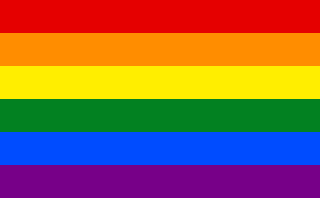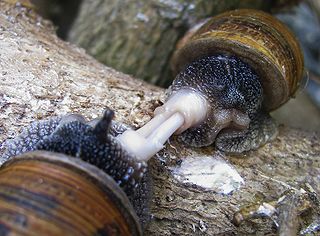LGBI may refer to:
- Lokpriya Gopinath Bordoloi International Airport, northeastern India
- Local Government Board for Ireland (1872–1922)
- "Lesbian, gay, bisexual, and intersex"; see Intersex and LGBT
LGBI may refer to:

Queer is an umbrella term for sexual and gender minorities who are not heterosexual or are not cisgender. Originally meaning "strange" or "peculiar", queer came to be used pejoratively against those with same-sex desires or relationships in the late 19th century. Beginning in the late 1980s, queer activists, such as the members of Queer Nation, began to reclaim the word as a deliberately provocative and politically radical alternative to the more assimilationist branches of the LGBT community.

LGBT is an initialism that stands for lesbian, gay, bisexual, and transgender. In use since the 1990s, the initialism, as well as some of its common variants, functions as an umbrella term for sexuality and gender identity.
Sex assignment is the discernment of an infant's sex at birth. Assignment may be done prior to birth through prenatal sex discernment. In the majority of births, a relative, midwife, nurse or physician inspects the genitalia when the baby is delivered and sex is assigned without ambiguity.

In reproductive biology, a hermaphrodite is an organism that has both kinds of reproductive organs and can produce both gametes associated with male and female sexes.

Intersex people are individuals born with any of several sex characteristics including chromosome patterns, gonads, or genitals that, according to the Office of the United Nations High Commissioner for Human Rights, "do not fit typical binary notions of male or female bodies". Though the range of atypical sex characteristics may be obvious from birth through the presence of physically ambiguous genitalia, in other instances, atypical characteristics may go unnoticed, presenting as ambiguous internal reproductive organs or atypical chromosomes that may remain unknown to an individual all of their life.

Intersex people are born with sex characteristics, such as genitals, gonads and chromosome patterns, "that do not fit typical binary notions of male or female bodies". Literary descriptions may use older or different language for intersex traits, including describing intersex people as hermaphrodites, neither wholly male or female, or a combination of male and female. This page examines intersex characters in fictional works as a whole, focusing on characters and tropes over time.

Intersex Day of Remembrance, also known as Intersex Solidarity Day, is an internationally observed civil awareness day designed to highlight issues faced by intersex people. It marks the birthday of Herculine Barbin, a French intersex person whose memoirs were later published by Michel Foucault in Herculine Barbin: Being the Recently Discovered Memoirs of a Nineteenth-century French Hermaphrodite.

Intersex people are born with sex characteristics, such as chromosomes, gonads, or genitals, that, according to the UN Office of the High Commissioner for Human Rights, "do not fit typical binary notions of male or female bodies."
Hijra, Hijrah, Hegira, Hejira or Hijrat may refer to:
The Phall-O-meter is a satirical measure that critiques medical standards for normal male and female phalluses. The tool was developed by Kiira Triea based on a concept by Suzanne Kessler and is used to demonstrate concerns with the medical treatment of intersex bodies.

Intersex people are born with sex characteristics, such as chromosomes, gonads, or genitals that, according to the United Nations Office of the High Commissioner for Human Rights, "do not fit typical binary notions of male or female bodies".

Intersex people are born with sex characteristics, such as chromosomes, gonads, or genitals that, according to the UN Office of the High Commissioner for Human Rights, "do not fit typical binary notions of male or female bodies". "Because their bodies are seen as different, intersex children and adults are often stigmatized and subjected to multiple human rights violations".

Intersex people are born with sex characteristics that "do not fit the typical definitions for male or female bodies". They are substantially more likely to identify as lesbian, gay, bisexual, or transgender (LGBT) than the non-intersex population, with an estimated 52% identifying as non-heterosexual and 8.5% to 20% experiencing gender dysphoria. Although many intersex people are heterosexual and cisgender, this overlap and "shared experiences of harm arising from dominant societal sex and gender norms" has led to intersex people often being included under the LGBT umbrella, with the acronym sometimes expanded to LGBTI. However, some intersex activists and organisations have criticised this inclusion as distracting from intersex-specific issues such as involuntary medical interventions.

Intersex rights in Australia are protections and rights afforded to intersex people through statutes, regulations, and international human rights treaties, including through the Sex Discrimination Act 1984 (Cth) which makes it unlawful to discriminate against a person based upon that person's intersex status in contexts such as work, education, provision of services, and accommodation.

Intersex people in the United States have some of the same rights as other people, but with significant gaps, particularly in protection from non-consensual cosmetic medical interventions and violence, and protection from discrimination. Actions by intersex civil society organizations aim to eliminate harmful practices, promote social acceptance, and equality. In recent years, intersex activists have also secured some forms of legal recognition.

Intersex people in South Africa have some of the same rights as other people, but with significant gaps in protection from non-consensual cosmetic medical interventions and protection from discrimination. The country was the first to explicitly include intersex people in anti-discrimination law.

Intersex people in the United Kingdom face significant gaps in legal protections, particularly in protection from non-consensual medical interventions, and protection from discrimination. Actions by intersex civil society organisations aim to eliminate unnecessary medical interventions and harmful practices, promote social acceptance, and equality in line with Council of Europe and United Nations demands. Intersex civil society organisations campaign for greater social acceptance, understanding of issues of bodily autonomy, and recognition of the human rights of intersex people.
An endosex person is someone whose innate sex characteristics fit normative medical or social ideas for female or male bodies. The word endosex is an antonym of intersex.